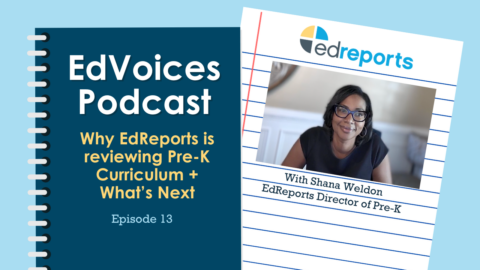EdReports Pre-K Reviews: Frequently Asked Questions
Explore answers to common questions about EdReports pre-K curriculum reviews, including timelines, domains addressed by the reviews, and research foundations.
Related Resources
video
Watch: Why EdReports is Reviewing Pre-K Curriculum and What’s Next
EdReports director of Pre-K, Dr. Shana Weldon discusses the organization’s expansion into reviewing pre-K materials, and shares more about how and why we’ll be providing free, by-educator reports to help preschool educators get the materials they deserve.
article
3 Reasons EdReports Is Launching Pre-K Curriculum Reviews
Find out how EdReports' pre-K curriculum reviews will promote access to high-quality materials and instruction for all of our youngest learners.
news
EdReports Expands Mission with First-Ever Pre-K Curriculum Review Criteria
Nationally recognized curriculum watchdog brings trusted evaluation to early learning, answering urgent demand for quality materials.


